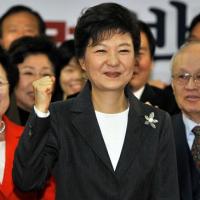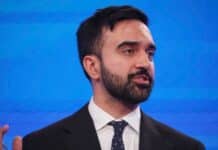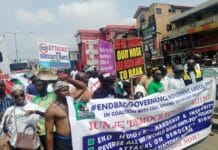But Park Geun-hye’s right-wing agenda will face mounting mass resistance
CWI reporters in South Korea
On 25 February, Park Geun-hye of the right-wing Saenuri (New Frontier) party, and daughter of assassinated military dictator Park Chung-hee, was sworn in as president of South Korea. Park becomes the first woman head of state in northeast Asia, at the helm of the world’s 14th largest economy. In an increasingly unstable region, with North Korea’s unpredictable nuclear brinkmanship and a deepening conflict between Japan and China, political developments in South Korea, which itself nurses great power ambitions, are important beyond its shores.
Park narrowly won the presidential contest in December, perhaps the most polarised in South Korea’s short history of capitalist ‘democracy’, defeating liberal opponent Moon Jae-in. This polarisation reflects the sharp divisions between rich and poor, and a growing divergence of economic fortunes between the dominant ‘chaebol’ (giant business conglomerates) and the rest of society. The election also reflected what the Global Times (Beijing) called “a dangerous generation gap”. Park enjoyed a significant lead among the over-50s, of whom almost 90 percent turned out to vote.
Overall election turnout was 75.8 percent, which is also a high figure. Older voters interviewed by the newspaper Kyungshung Shinmun said they voted for Park for ‘stability’. This reflects deep insecurity as the country’s one time ‘economic miracle’ has vanished into record levels of household debt and a harsher economic climate. The central bank has repeatedly downgraded its growth forecasts for the coming year, now predicting just 2.4 percent. This is a far cry from the average of more than 8 percent per year recorded in the 1960s-80s.
Park’s father is widely held up as the founder of that exceptional economic surge, which was based on developing key export industries with a heavy dose of ‘state capitalism’ that fostered and protected the chaebol. On assuming power, Park Chung-hee nationalised the banks and centralised all bank lending under government control. He established ‘five year plans’, copying the industrial policies of Japan. Among some of the older generation, nostalgia for this era as one of government-driven economic growth, clearly played a role in the election outcome.
Park also won a slender majority among women voters in a society with “the highest level of gender inequality in the world” (Korea Herald, 6 January). To be more exact, South Korea ranks 108th in the world for gender equality, between the United Arab Emirates and Kuwait, based on a study by the World Economic Forum. South Korean women who have children earn 45 percent less than men. But on many issues, including a top court’s recent reaffirmation of the ban on abortion, the new president has shown she is no fighter for women’s rights.
Ruling party makeover
Park was strongly opposed in the election by organized workers and most of the younger generation, as well as democratic and civil rights groups. Workers rightly see her and her party as puppets of the chaebol, who want to offload the economic crisis of capitalism onto the backs of the working class. Another key issue is the attacks on democratic rights and greater use of repression that has been a clear trend under the previous president and fellow Saenuri politician, Lee Myung-bak. The perception that democratic rights are under threat – rights won through heroic mass struggle against the military dictatorship – is reinforced by Park’s political ‘DNA’. She eulogises her dictator-father who was notorious for ruling with an iron fist from 1961, when he staged a military coup, until his death in 1979.
In November, Amnesty International criticised the use of dictatorship-era National Security Law by Park’s predecessor, Lee, to silence political debate and crack down on critical websites. According to Amnesty, the number of people questioned under the law almost doubled in the past four years. Last year, journalists staged big strikes against Lee’s attempts to control the media.
The ruling party can be thankful for the election rule that limits South Korean presidents to just one mandate period. Lee was deeply unpopular, mired in corruption scandals, with an approval rating that sank to 20 percent last year. Not surprisingly, Lee’s “747” pledge made when he was elected (7 percent GDP growth, US$40,000 per capita income, 7th largest economy) has failed. Facing probable defeat, the ruling party changed its name (from Grand National Party) and appointed Park to head an ‘emergency committee’, securing an unexpected victory in parliamentary elections last April.
To some extent Saenuri has been rebuilt as a vehicle for Park as leader. In the presidential election she distanced herself from Lee’s presidency by striking a more populist tone on social issues, couched in the fuzzy slogan “economic democracy”. She made some promises of welfare improvements in childcare and pensions. In this way, she was able to ring-fence her own presidential bid from the groundswell of anti-government feeling against Lee’s administration. This was possible due to the political bankruptcy of the main ‘opposition’, the liberal capitalist Democratic United Party (DUP).
Social crisis
The living standards of South Korean workers have faced sustained attack from both Saenuri/GNP governments and the DUP. Today the ‘working poor’ account for one in four of the workforce according to a report by the Korea Labour Institute, the highest proportion among the countries of the OECD (Organisation for Economic Co-operation and Development). This is above all due to the explosive increase in irregular jobs at the expense of regular jobs; over half the economically active population are ‘irregular’ workers, including not only manufacturing workers but also white collar workers and even university professors. This two-tier workforce, which imposes lower pay and strips irregular workers of pensions, medical insurance and job security, was introduced by the DUP government during the 1997-98 Asian financial crisis. The average monthly pay of irregular workers is just 55 percent of regular workers. Last year the minimum hourly wage was raised only slightly to 4,860 won (US$4.50), which is far short of the moderate demand for 5,600 won from the KCTU (Korean Confederation of Trade Unions).
Consequently the country now has one of the most extreme wealth gaps of any industrialised economy, with the richest one-fifth earning 6.9 times the income of the poorest fifth. That is a jump from 5.4 times in 2006. According to figures from the OECD, over 15 percent of South Koreans now live below the poverty line and poverty among over-65s is the highest of any OECD country.
Among youth the search for jobs is becoming a nightmare. “Joblessness for young hits a 30-year high,” was a headline in Joong Ang Daily this month, showing the number of under-30s in a job was 106,000 less than a year ago. While officially, youth unemployment is 7.5 percent, more reliable surveys put the figure at one in five. Even in one of the wealthiest countries in Asia, therefore, capitalism translates into an endless series of neo-liberal attacks. So how could a candidate of the incumbent right-wing government win the presidency?
Election shock
“There will now be much soul-searching on the political left,” commented The Economist (London) after December’s election. Park’s victory clearly was a shock to sections of the left and the trade union movement, not to mention the DUP, whose defeated candidate, Moon, admitted to a “historic failure”. Despite her lead in opinion polls, many believed the DUP candidate would emerge the winner. Some groups have protested about electoral fraud, pointing to lapses in the electronic counting system. 250,000 people have signed an online petition calling for a manual recount, saying Moon votes were misallocated to Park.
Whether this would change the outcome, however, is unclear. The bigger issue is the political bankruptcy of the ‘democratic’ bourgeoisie and the DUP, which has ruled South Korea for ten of the past 15 years. It has demonstrated that in office it does not fundamentally differ from the capitalist pro-rich agenda of the Saenuri.
All candidates attacked the chaebol, whose often corrupt antics arouse massive anger. But as the BBC’s Seoul correspondent, Lucy Williamson, commented, “chaebol bashing is a well-worn political tactic here”. Once the votes are counted, the politicians of both major parties continue as before to bend the knee to the chaebol. As one banker told Bloomberg News, before the December poll: “The most aggressive policies will be toned down due to practical constraints and the importance of the chaebol to the economy”.
Despite the politicians’ “chaebol bashing”, these companies have relentlessly increased their stranglehold on the economy. The top 35 chaebols dominate a further 600 stock market companies, double the number of four years ago. The biggest 30 chaebols control four fifths of South Korea’s exports. They include giants like Hyundai, LG, Samsung and Kia.
For a real workers’ alternative
The presidential election was also a backward step in another important regard, ultimately the most crucial – the lack of a real left challenge from workers’ organisations. This is despite previous electoral challenges by union-backed candidates that showed the potential for the creation of a mass working class alternative to the two dominant capitalist parties. In the last presidential election of 2007, a candidate supported by the KCTU received a promising 720,000 votes.
In December’s election, a more splintered ‘left/progressive’ camp, ran a number of candidates that mostly urged support for the DUP’s Moon in order to “stop Park”. As we have seen, this argument was not enough to defeat Park. Moon’s campaign could not shake off the handicap of the DUP’s atrocious record in office, of neo-liberal attacks and attempts to shackle the unions during the presidencies of Kim Dae-jung and Roh Moo-hyun.
Moon was chief of staff during Roh’s presidency (2003–2008) and therefore closely associated with the late leader who committed suicide in 2009. Commentators spoke of the election as a proxy fight between the ghosts of Park Chung-hee and Roh Moo-hyun. One was an anti-communist dictator, while the other had a vague ‘left’ aura that evaporated once he was placed in the presidential hot seat. Having boasted he would be the president to stand up to the US, Roh soon buckled to US pressure, participating in the Iraq war and agreeing to build new US military bases in South Korea. He also signed neo-liberal trade pacts that of course benefited the chaebols but again hit workers and poor farmers. During Roh’s presidency the use of irregular workers exploded, further enabling the capitalists to drive down wages and conditions. This created a wave of disillusionment that allowed the right to retake the presidency in 2007.
The smaller ‘progressive’ and left parties went into December’s elections from a period of disarray, political scandals and splits. The largest of these formations in electoral terms, the United Progressive Party (UPP), fielded Lee Jeong-hee as its presidential candidate, at one stage registering 2 percent in opinion polls. But Lee made no secret of her intention to withdraw in support of Moon, which she did in the last days of the campaign. The UPP is dominated by a neo-Stalinist pro-North Korea faction that believes in a ‘stages’ theory to justify support for the ‘democratic’ bourgeoisie (the DUP), against the pro-imperialist bourgeois representatives such as Park.
The UPP emerged from the Democratic Labor Party (DLP), a broad merger of left groups that the KCTU played a key role in launching more than a decade ago. But revamped as the UPP, the party split last year into several groups, amid sharp debates and even cases of physical violence. These debates centred on issues such as internal democracy, attitudes to North Korea and the dominant (Stalinist) UPP group’s insistence on an electoral bloc with the DUP. This is a modern form of Popular Frontism, of collaboration with the ‘radical’ capitalists, which everywhere (China, Spain, Iran) has led to disaster for the working class.
In the presidential election, three other candidates stood who were mostly linked to ex-factions of the UPP. Of these, Shim Sang-jeong of the Progressive Justice Party (PJP), a liberal current, also withdrew in Moon’s favour. In one sense these presidential campaigns were a continuation of last year’s factional clashes, an attempt to vindicate past actions, rather than a real attempt to use the limited electoral space to build support for a left alternative.
The pressure to support Moon as the ‘lesser evil’ in the elections was a major factor, which affected layers of the KCTU bureaucracy, although Moon gained more union endorsements from the pro-establishment Federation of Korean Trade Unions (FKTU). Workers’ organisations are not immune from the pressure of ‘pubic opinion’, which in reality is the attempt of the capitalist class to smother any moves towards independent working class politics. But socialists and worker activists need to fight against this pressure and argue for independent class politics, both in and outside the electoral arena.
Confusion within left
Even the group ‘All Together’ (linked to the International Socialist Tendency/British SWP) adopted a position of ‘critical support’ for Moon, reflecting an international trend within this organisation, which took a similar position in Egypt towards the election of the Muslim Brotherhood’s Mohamed Mursi. In South Korea, this organisation argued, “it is clear that Park Geun-hye must be stopped in the upcoming presidential elections”. As if utilising a bourgeois election system – with the timing, funding and media controlled by the capitalists – could be the main way of defeating Park.
They wrote, “The reason why we decided on a tactical compromise by giving critical support to Moon Jae-in in spite of this position is to build solidarity and connect with millions of working people who wish the electoral defeat of Park Geun-hye.” [Statement by Steering Committee of All Together, 10 December 2012]
This statement completely misunderstands how a dialogue can be built with workers who fall for the ‘lesser evil’ philosophy, not through making concessions to such illusions but through common struggle against capitalism and the right, linked to clear socialist explanations.
A new chapter
Given the world background and accumulation of social contradictions inside Korea, Park’s presidency will inevitably steer onto a collision course with the working class and the youth. In her ‘transition team’ set up in December, Park surrounded herself with supporters of the so-called ‘new right’ – hard-line conservatives who worship her father’s 1961 military coup and take a hawkish stance against North Korea. This echoes developments in Japan, where the new Abe government also marks a shift in favour of right-wing nationalists. Park’s promised welfare reforms remain to be seen, with a growing clamour from within her party and big business that the economy cannot afford them.
The urgent need now is the creation of a workers’ party, by assimilating the complex and important lessons and shortcomings from the past few years of left political projects. A new chapter is opening in South Korea, as workers will have no choice but to struggle against Park’s rule. This means big possibilities for building a genuine socialist alternative.
For historical background see South Korea: The Tiger Strikes




